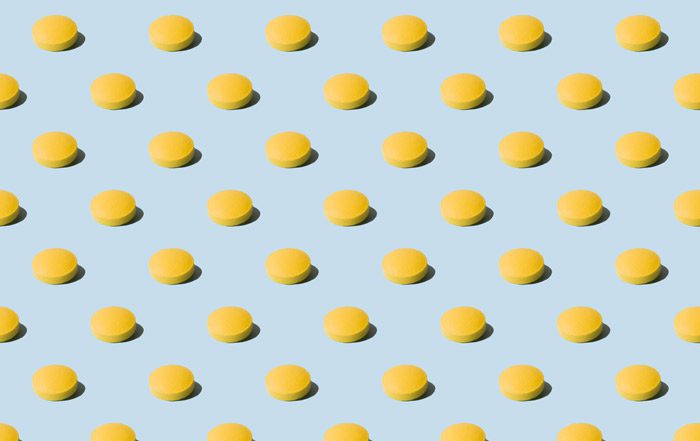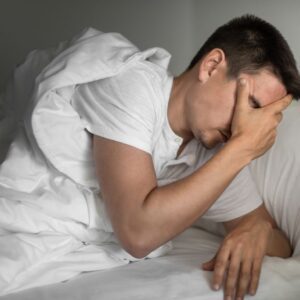 South Carolina’s opioid epidemic has affected people of all ages, races, genders, and socioeconomic backgrounds. Many individuals who struggle with opioid addiction have a history of abusing the prescription painkiller OxyContin.
South Carolina’s opioid epidemic has affected people of all ages, races, genders, and socioeconomic backgrounds. Many individuals who struggle with opioid addiction have a history of abusing the prescription painkiller OxyContin.
About OxyContin
OxyContin is a timed-release formula of oxycodone, a narcotic analgesic used to treat moderate to severe pain associated with conditions such as injuries, surgical recovery, cancer, or arthritis. Typically, a pill contains between 10 and 80 milligrams of oxycodone to allow for up to 12 hours of pain relief.
Oxycodone is designed to replicate the structure of morphine (an opiate). It is considered an opioid because it is synthetically made. Other popular prescription opioid medications that contain oxycodone include Tylox, Percodan, and Percocet.
Recognizing OxyContin Addiction
Addiction to OxyContin takes many different forms. When it starts with a legitimate prescription and the person discovers how effective the medication is at relieving their pain, they may begin to increase their dosage or take pills closer together than what their healthcare provider recommended. Over time, a tolerance develops and the individual becomes both physically and psychologically dependent on the drug. Eventually, their entire life starts to center around chasing the euphoric feeling they associate with opioid use.
Someone who doesn’t have a prescription for OxyContin may be introduced to the drug through a friend. Teens and young adults often experiment with OxyContin and other prescription opioids because they mistakenly believe this type of substance abuse is safer than using illegal street drugs.
Signs of OxyContin Abuse
Signs that suggest a person may be abusing OxyContin include:
- Obtaining pills from the black market or by seeing multiple doctors for prescriptions
- Being preoccupied with obtaining a steady supply of OxyContin
- Poor grooming or a general lack of personal hygiene
- Intermittent periods of euphoria and apathy
- Hallucinations
- Being secretive about one’s whereabouts or suddenly spending time with an entirely different group of people
- Problems with concentration and memory leading to declining performance in work or school
- Loss of interest in hobbies or spending time with friends and family
- Being angry or defensive when confronted by friends or family who express concern about OxyContin usage
- Financial problems related to substance abuse
- Stealing medication, money, or valuables from loved ones
- Unexplainable weight loss
- Being unable to cut back or stop the use of OxyContin despite a sincere desire to do so
Even when taken precisely as prescribed, OxyContin can cause side effects such as dry mouth, headache, fatigue, nausea, vomiting, sweating, itching, and loss of appetite. When taken at the high doses associated with substance abuse and addiction, the side effects tend to be more extreme. When doses are missed, withdrawal symptoms such as muscle aches, anxiety, agitation, insomnia, dilated pupils, abdominal cramping, diarrhea, and runny nose may occur.
OxyContin Addiction Can Lead to Illegal Opioid Use
When OxyContin is abused on the street, users often crush the tablet to swallow or snort it. They may also dilute it in water to inject it. Both of these approaches destroy the time-mechanism to provide a feeling of euphoria similar to heroin use. However, since heroin is cheaper and easier to obtain than high doses of OxyContin, it’s common for those who develop an OxyContin addiction to graduate to illegal drug use.
People who abuse OxyContin sometimes refer to it by slang names such as Kicker, OxyCotton, OC, and Hillbilly Heroin.
Overdose Dangers
As with any type of opioid, it is possible for a fatal overdose to occur when someone is abusing OxyContin. The risk of a fatal overdose is highest when the drug is mixed with alcohol or other addictive substances.
Naloxone can be given to temporarily block or reverse the effects of opioid use and prevent the respiratory failure that is associated with a fatal overdose. In recent years, there has been a widespread effort to ensure paramedics, police officers, firefighters, and other first responders have access to naloxone. Since June 2016, South Carolina residents have also been able to request naloxone for personal use with no prescription by visiting any participating pharmacy.
The Road to Recovery
Recovery from opioid addiction isn’t easy, but we’re here to help. Waypoint Recovery Center’s South Carolina drug and alcohol addiction treatment center offers a full continuum of care for people diagnosed with substance use disorders and co-occurring mental health conditions such as anxiety and depression. Our experienced and compassionate staff provide individual, group, and family therapy designed to help clients develop the foundation for long-term sobriety. Medication-assisted treatment is available for those who stand to benefit from this promising approach to treating opioid addiction.
Our philosophy is based on the belief that recovery is a journey and that everyone’s path is unique. No matter what challenges you’ve experienced in the past, we believe there’s always hope for change when you have access to a strong support system. Let us help you take the first steps towards a brighter future.





